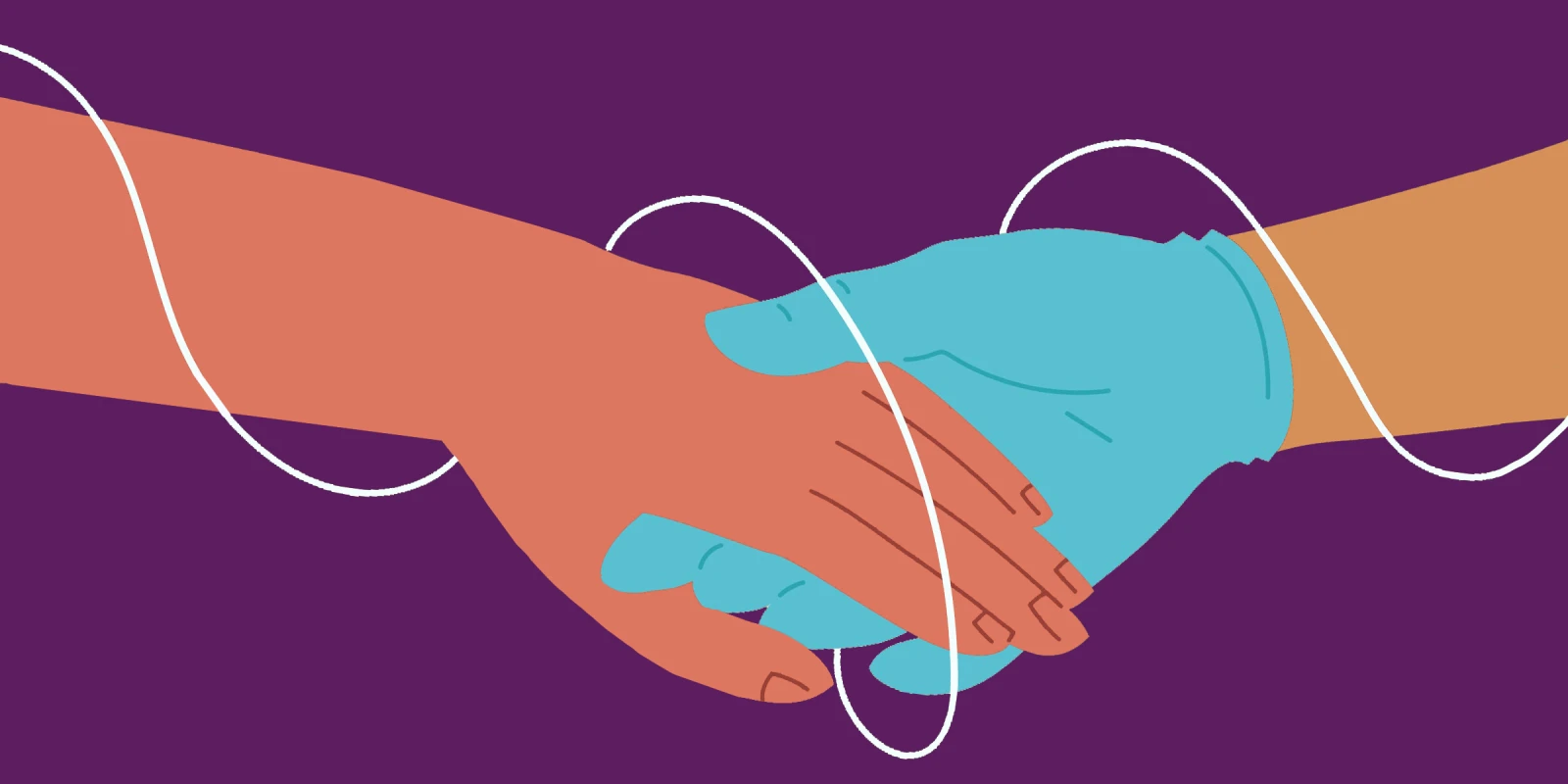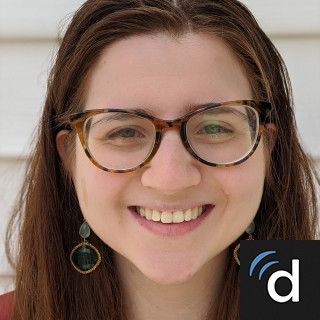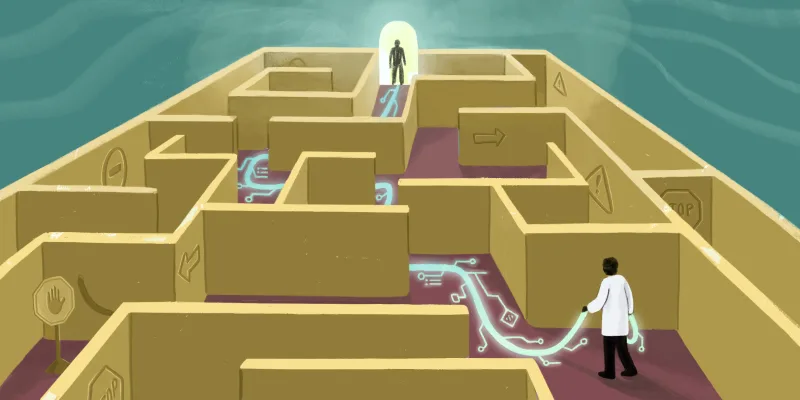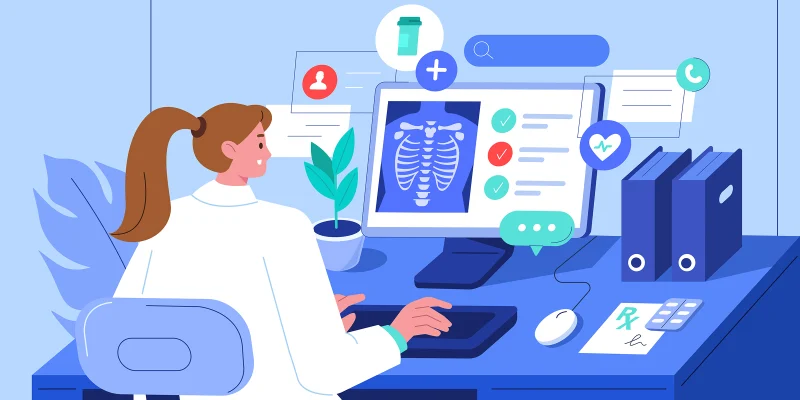One day with a medical student, we sat in the overly air-conditioned workroom with no windows, reading the patient chart together. Times have already changed since I was a medical student with paper records that were impossible to sort through. It's now standard of care for clinicians to look at the EMR prior to a patient encounter. We collect the data: recent labs, imaging, and vital signs. We review past progress notes and admission histories. We look at the lists of medications and medical problems. This helps create a medical foundation for an initial differential diagnosis to guide the actual visit and determine what information still needs to be elicited. We do it so often that clicking the mouse to the different sections in the medical record happens intuitively.
To the medical student's surprise, I said, "What's the actual story? Not the medical summary we are programmed to formulate and present, but the personal journey. The emotions and logistics of living with and responding to pain, shortness of breath, and nausea, of living with one, or more often, many diseases. How can the medical record help us with not only understanding the facts, but also the experience of those facts?" The medical student still seemed puzzled but also intrigued. I remained hopeful I could teach her something new.
I shared my initial interpretation: This man has lived with a cancer of his blood for 30 years. For 25 years he only required laboratory monitoring, and in the last five years he has undergone chemotherapy that has been well tolerated. Now he is bleeding and is going through his first big hospitalization, requiring frequent transfusions and radiation. I shared that while his oncologist is probably very worried about him and that time might be short, I would not be surprised if that patient shared a lot of optimism for getting home soon and resuming chemotherapy. I felt like a fortune teller when this is exactly what he shared with us: "I've lived with cancer for so long, I’m going to continue to live well with cancer."
One of the main reasons I took my first attending job as an oncology hospitalist is that I knew oncologists are the best at documentation. It’s as if it's a requirement in becoming an oncologist. Finding an oncology note is like a treasure chest amidst the vast island of EMRs. This made the job of admitting patients to the hospital so much less daunting. In particular, the past oncological history section lists all the dates related to diagnosis, treatment, and surveillance of cancer. Compared to my internal medicine residency experiences, never once as an oncology hospitalist did I get frustrated with not being able to find the necessary information in the EMR.
In reading timelines of oncological medical facts 12 times a shift for a year, I started to think about the illness experience. Her lung cancer was incidentally found during a chest X-ray for a fever and cough. She had a lung resection. This was six years ago. Now she is presenting with metastatic recurrence. His esophageal cancer took months to diagnose because they thought the symptoms were reflux. No biopsy was obtained during the first endoscopy. Then a second endoscopy with a biopsy showed adenocarcinoma. He is coming in with septic shock before his initial oncology appointment. By knowing when and how they were diagnosed, where they were in their treatment cycle, and how many ups and downs they have had in their cancer journey, I could anticipate unique illness understandings, hopes, and worries.
We can all learn from our oncology colleagues in creating consolidated illness timelines rather than just sifting through the random medical facts of the EMR. The incidence of chronic illness experiences are increasing, requiring more frequent touchpoints with the health care system. I feel wary recommending that primary care clinicians should be tasked with consolidating and organizing the illness experiences of patients, as there is already too much for them to do. Ideally we should all be using chronological documentation methods, and EMRs should support patient data presentations more sequentially.
I have worked hard to rewire my brain from the initial programming of medical school and residency to read the medical record in search of the individualized illness experience. This requires curiosity not only for the medical presentation but also for the human experience. While precharting, I take a minute to ask myself, What is something I can say to this person that acknowledges not only have I read your medical record, but I am trying to connect with you as a human being? "I noticed you had a recent hospital admission during the holidays, how was that for you?" "I see your illness was only very recently diagnosed, how are you doing?" "I believe this is your first time being in the hospital, how are you feeling about it?"
Look at their birthday. See what town they live in. Notice how long they have been waiting to be seen. Observe how long they were able to make it home between admissions. Or when they were initially diagnosed with their disease. If they have young kids or pets, wonder who is taking care of them. How are they coping? How is their family coping? Anticipate how they might feel but also leave the door open for them to share.
Since I've started making these observations, I no longer hear previously common statements: "Haven't you read my medical record?" "Didn't you talk to my other doctors?" I no longer see tense faces and crossed arms. Instead, these emotional, acknowledging statements allow muscles to relax and tears to emerge from tired, skeptical eyes. I hear sighs of relief and responses of gratitude. As health care has become so fragmented, so medicalized, and so complicated, this is a small, tangible way we can reprioritize the patient experience. A way we can anticipate, name, and honor the emotional and logistical experience of both wellness and illness.
Think of a patient case you recently read. What's a question you could have asked to connect? Share in the comments.
Charlotte Grinberg is a hospice and palliative doctor for Tufts Medicine. Her writing has appeared in JAMA, Health Affairs, and the Annals of Internal Medicine. She tweets at @drcharlotteG. She was a 2020–2021 Doximity Op-Med Fellow and continued as a 2021-2022 Op-Med Fellow.
Image by fedrelena / GettyImages







